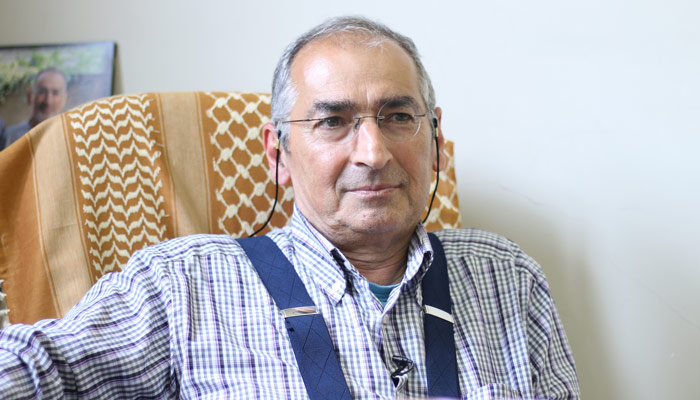CHRI – Sadegh Zibakalam, a Tehran-based reformist political analyst and academic known for his criticisms of Iranian state policies, has been fined for telling a foreign newspaper that the majority of Iranians do not support the Islamic Republic.

The Tehran University political science professor told the Center for Human Rights in Iran (CHRI) on February 28, 2018, that he was questioned at Branch 2 of the Culture and Media Court in Tehran after he made the comments in an interview with Deutsche Welle.
“In an interview about recent disturbances in early January (2018), I said if a referendum was held today, a considerable number of Iranians would not vote for the Islamic Republic; perhaps only 30 percent would,” Zibakalam told CHRI. “The prosecutor has taken my words to be ‘propaganda against the state’ and ‘weakening the state.’”
“It has become a trend; they really want to force me to stop giving interviews,” he added. “This is a violation of freedom of speech. It’s the third time I have been taken to court for giving an interview. Just two weeks ago, the Appeals Court issued a final ruling against me.”
The political analyst told CHRI that ultimately the Appeals Court ordered him to pay four million tomans (approximately $1,069 USD) for “disturbing public opinion” for saying that the Iranian judiciary had not been impartial in trying to prosecute President Hassan Rouhani’s brother, Hossein Fereydoun.
“The ruling that has been issued to me says the decision is final,” he said. “But I still haven’t paid the fine because I really think that someone who says the judiciary is not acting independently should not be charged with ‘disturbing public opinion.”
“In my statements in my own defense and in a letter to the judiciary chief [Sadegh Larijani], I said I agree that my intention was to disturb public opinion but I want to know, how does the judiciary measure such things?” he added.
“Even if what I did was a crime, what did I do that convinced you I was disturbing public opinion?” said Zibakalam. “How did you know? Did you conduct a poll to measure how the people were disturbed by my interview? There really isn’t any framework or discipline for measuring disturbances of public opinion. Propaganda against the state? What are you talking about? Even more interesting is charging me with ‘weakening the state!’”
Contract Suddenly Canceled
Zibakalam also told CHRI that his contract was recently canceled by Tehran’s Islamic Azad University (IAU), where he had been working as a professor for a decade.
“The IAU has unilaterally canceled my contract after 10 years without any prior notice,” he said. “One of my colleagues, who’s a legal expert at Tehran University, told me I should file a complaint with the Labor Ministry because employers cannot break a contract without prior notice and they should pay compensation for all my years of work.”
The political scientist added: “Expelling professors who teach humanities and rewriting their contracts are attempts by the IAU to make universities more Islamic and inject the state’s ideology into the curriculum. But this method has been tried and has failed in Eastern European countries [under communism] and China. It will also fail in Iran.”
On February 5, 2018, the Shargh newspaper reported that the IAU had altered its contracts with many of its teaching staff. In the Science and Research Department alone, about 170 professors had been demoted to part-time positions.
“The word going around is that some of the IAU’s prominent law and political science professors… have been expelled,” tweeted former student activist Hasan Asadi Zeidabadi on February 5, 2018.
Iran’s Supreme Leader Ali Khamenei has often called on Iranian universities to avoid teaching Western ideas in the humanities and instead focus on Islamic sources.
“Individuals both inside and outside the Supreme Council of Cultural Revolution are working in this area. Different organizations are working on humanities,” said Khamenei during a speech in May 2017.
He added: “They have the same goal. Of course, they have not referred to their work as ‘The Quran and Humanities’ or other such titles. However, they are working in the direction of developing a link between humanities and Islamic teachings.”
In June 2014, Zibakalam was sentenced to 18 months in prison for criticizing Iran’s nuclear program policies and the state’s handling of financial corruption cases by the judiciary. His sentence was later reduced to a fine of five million tomans (approximately $1,530 USD).
Before the 1979 Revolution, Zibakalam served two years and one month in prison for his membership in the outlawed Mojahedin-e Khalgh (MEK, also known as MKO or PMOI). He was released in September 1976.
 Shabtabnews In this dark night, I have lost my way – Arise from a corner, oh you the star of guidance.
Shabtabnews In this dark night, I have lost my way – Arise from a corner, oh you the star of guidance.


